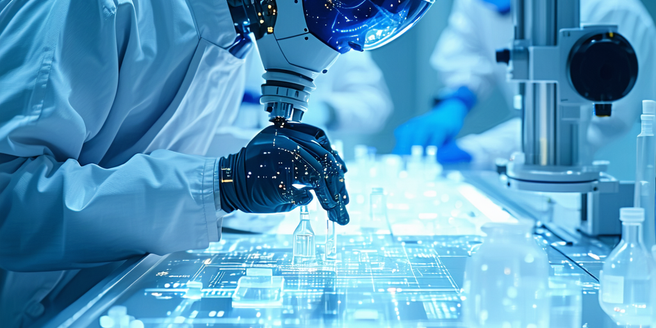Nanotechnology In Medicine

Understanding Nanotechnology: A Brief Overview
Nanotechnology refers to the manipulation of matter at an atomic or molecular scale, typically below 100 nanometers. At this scale, materials exhibit unique physical and chemical properties that differ significantly from their bulk counterparts. These properties open up new possibilities in various fields, including medicine, electronics, and materials science. In medicine, nanotechnology is used to create new materials and devices that have the potential to revolutionize diagnostics and treatment strategies. Scientists are particularly interested in the ability to deliver drugs directly to targeted cells, reducing side effects and improving efficacy. Additionally, nanotechnology is being explored for the development of nanoscale diagnostic tools that can detect diseases earlier and with greater accuracy. Understanding the potential and limitations of nanotechnology is crucial for advancing this field and ensuring its safe and effective application.
Applications of Nanotechnology in Modern Medicine
Nanotechnology is making waves in modern medicine with its wide-ranging applications. One of the key applications is in targeted drug delivery systems, where nanoparticles are engineered to deliver drugs precisely to diseased cells without affecting healthy tissues. This minimizes side effects and improves treatment outcomes. Nanoparticles are also used in imaging techniques, enhancing the contrast of images to help detect tumors in their early stages. Moreover, nanotechnology is playing a vital role in regenerative medicine. Nanomaterials can be used to create scaffolds that mimic natural tissue environments, promoting the regeneration of human tissues. The field of cancer treatment is particularly benefiting from nanotechnology, where it helps to deliver chemotherapy drugs more efficiently. The integration of nanotechnology into modern medicine not only enhances the effectiveness of existing treatments but also opens doors to new therapeutic approaches.
Benefits of Nanotechnology for Disease Diagnosis
Nanotechnology presents numerous benefits for disease diagnosis, offering tools that can detect diseases much earlier than traditional methods. Nanoparticles can be engineered to recognize specific biomarkers associated with certain diseases. When these nanoparticles bind to their targets, they can be detected using advanced imaging technologies, allowing for early diagnosis. The sensitivity of these nanoscale tools enables them to detect diseases at molecular levels, even before symptoms appear. This early detection is crucial in diseases like cancer, where prognosis is significantly better if diagnosed at an early stage. Moreover, nanotechnology enables point-of-care testing by creating compact diagnostic kits that can deliver quick and accurate results. This decentralization of diagnostics to the patient’s bedside improves accessibility and efficiency, particularly important in underserved areas where access to centralized laboratory facilities may be limited.
Challenges Facing Nanotechnology in Healthcare
While nanotechnology holds great promise for advancing healthcare, several challenges must be addressed. One of the primary concerns is the safety and toxicity of nanomaterials, as their small size allows them to penetrate biological systems easily, potentially causing unintended biological interactions. Comprehensive studies are necessary to fully understand and mitigate health risks associated with nanomaterials. Regulatory frameworks also need to be adapted to account for the novel properties of nanoscale products. The cost of research and development of nanotechnology-based medical applications can be high, raising questions about the affordability and accessibility of these innovations. Ethical considerations surrounding the use of nanotechnology in medicine must also be addressed, including potential privacy concerns related to nanoscale data collection. Collaborative efforts between researchers, industry stakeholders, and regulatory bodies are essential to overcoming these challenges and realizing the full potential of nanotechnology in healthcare.
The Future of Nanotechnology in Medical Treatments
The future of nanotechnology in medical treatments is teeming with possibilities, promising to transform the landscape of healthcare. As research continues to evolve, we can expect to see more sophisticated drug delivery systems that provide even more precise targeting of diseased cells, minimizing side effects. Nanotechnology is also expected to drive advancements in gene therapy, where nanoscale carriers can deliver genetic material to the right places, potentially curing genetic disorders. The development of smart nanomaterials capable of adapting to specific biological environments will enable personalized medicine, where treatment is tailored to the unique genetic and biochemical makeup of the patient. Furthermore, the integration of nanotechnology with digital health technologies holds the potential for developing innovative diagnostic tools and wearable devices that offer real-time health monitoring. The continuous progress in this field portends a new era of medical treatments that are more effective, efficient, and patient-centered.